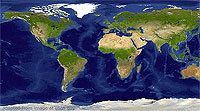Foreign policy provisions of Putin’s address create new understanding of Russian international role – Pushkov

MOSCOW. Dec 12 (Interfax) – State Duma International Affairs Committee Chairman Alexei Pushkov has stressed the importance of foreign policy provisions in the state-of-the-nation address presented by President Vladimir Putin to parliament on Friday.
“This (foreign policy) part of the presidential message contained a number of significant provisions, primarily the emphasis on the sovereignty of Russia and its policy. The president made several references to the idea of sovereignty and Russia’s influence in international affairs; he said that the country would multiply its geo-political importance. In my opinion, this statement signifies a new phase in the understanding of the international role of our country,” Pushkov told Interfax.
He presented his interpretation of the presidential message. “As far as I understand, our country can and should be an independent nation, an independent center of influence and a subject of attraction. The president said that very clearly; he noted that we should use the advantages of our position in the development of relations with neighbors in the Customs Union and the Eurasian Economic Union,” Pushkov said.
Therefore, the head of state “confirmed the main strategic idea, which he presented ahead of the presidential election: the country will transform into an independent center of influence and will build its own group of economic integration,” Pushkov said.
He also paid attention to the idea that “not a single country or even a group of states is capable of coping with regional and global challenges independently in the 21st century.”
Pushkov presumed that the president primarily implied the situation in Syria. “Putin said that many deemed the world a one-polar structure only ten years ago. I must add that the U.S. political class still thinks that. The U.S. president, who understands that the world has become multi-polar, is rather an exception among U.S. politicians, the majority of whom think, judging by the Magnitsky Act, that they have the right to apply their jurisdiction and standpoint to other states, i.e. export democracy and organize the so-called ‘orange revolutions’,” the Russian parliamentarian said.
This shows that most U.S. politicians “are stuck in the 20th century and never passed into the 21st century.”
“Responding to their ideas, Putin said that only a coordinated policy in international affairs can bring success in the solution of pressing international problems. That is a different question how much our partners are prepared for that,” Pushkov said.
